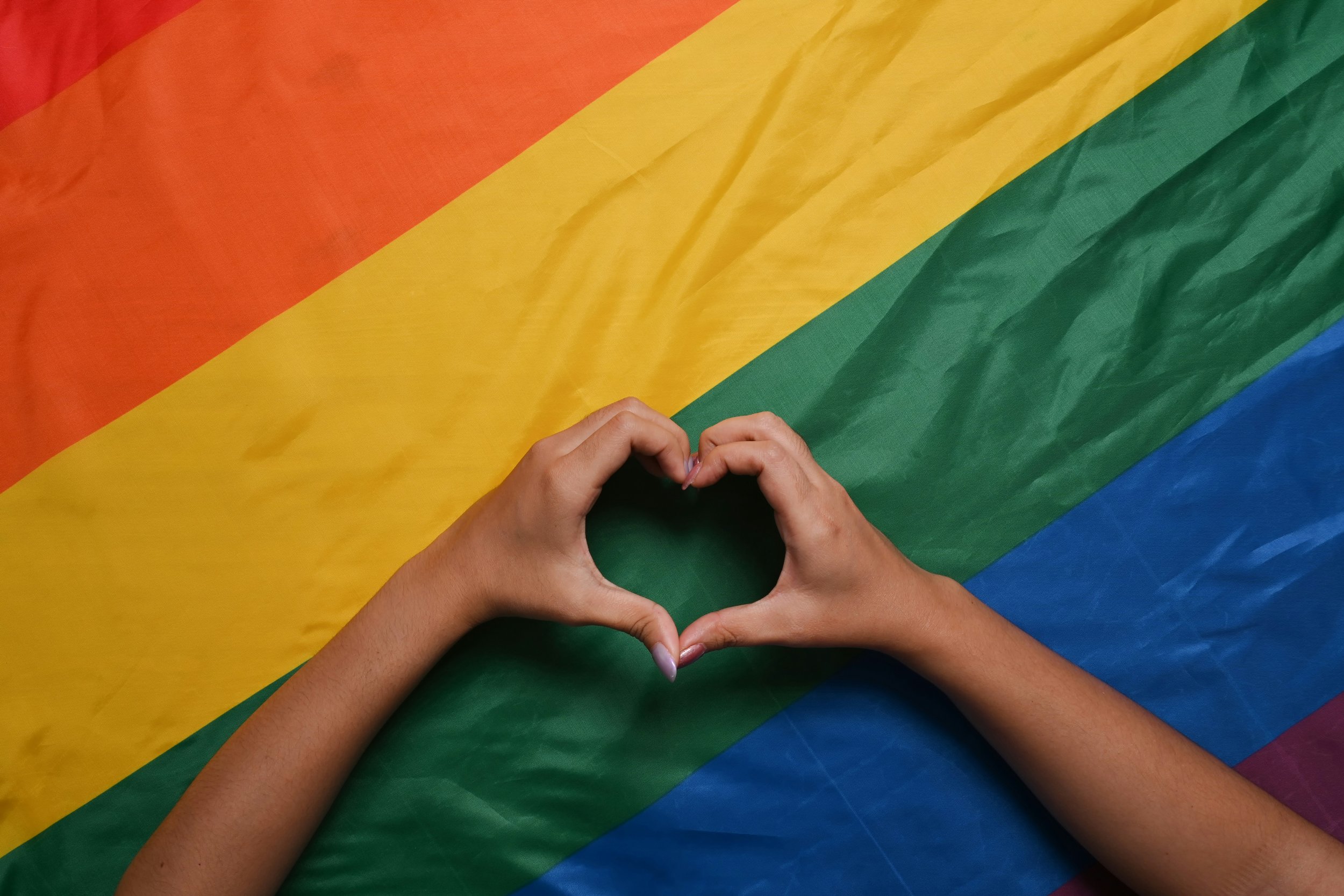How to Survive Your Homophobic/ Transphobic Family During this Holiday Season.
The holidays can be such a special time to celebrate where you come from—family gatherings and friends coming together. It might be a time when you sit around the table, talk about what you’re thankful for, pass the turkey, eat way too much, and then laugh about it later. The holidays can bring people closer, especially for those who don’t spend a lot of time with their family throughout the year.
But for some of us, the holidays are daunting. If you’re lesbian, gay, bisexual, trans or non-binary and your family isn’t okay with your sexual orientation or gender identity, this time of year can feel scary. You want to feel happy because everyone and everything around you—commercials, music, decorations—keeps saying this is the happiest time of the year. But deep down, you don’t feel that way.
If this is how you feel, you’re not alone. A lot of people in the LGBTQIA+ community feel the same way. There’s this push and pull: you want family and connection, but at the same time, you feel fear and anxiety at the thought of going home. A time that’s supposed to be joyful and warm instead makes you feel like you’re surrounded by the people closest to you but somehow still completely alone.
If your family has even a hint of homophobic or transphobic beliefs, and you’re already dreading going home for the holidays, here are some things to help you survive the season.
1. Manage Your Expectations
It’s hard to admit, but sometimes it’s better to lower your expectations of family members who might say something uncomfortable about who you are. While that might feel sad, it’s also freeing. Managing your expectations means you’re no longer hoping they’ll magically change, and instead, you’re grounded in what’s likely to happen based on past experiences.
For example, maybe last Thanksgiving your grandma asked you for the fifth time when you’re going to bring a girl home—even though you introduced her to your boyfriend last year. Some people might laugh this off as harmless ignorance, but for some of us in the queer community, those comments cut deep. They feel like shards of glass, leaving wounds that scream, Do you even know me at all? Do you even want to know me?
So if you’re walking into Thanksgiving this year hoping for a change, take a moment to ask yourself: Does hoping for the best actually leave me feeling worse when my expectations aren’t met? If the answer is yes, it’s time to step into your reality and prepare yourself emotionally for what’s likely to happen.
2. Approach Homophobia and Transphobia with Dialectical Thinking
Dialectical thinking means accepting that two seemingly opposite things can be true at the same time. When dealing with a homophobic or transphobic family during the holidays, here’s an example:
You love your family and want to enjoy the holidays.
Your family ignores or disrespects an important part of who you are, and it hurts.
Both can be true at the same time. When you see things through a dialectical lens, you’re able to see reality for what it truly is—not what you wish it could be. And when you accept reality, you’re better equipped to navigate your emotions and relationships.
Dialectical thinking doesn’t mean giving up on the hope for change, but it does mean acknowledging the here-and-now. You can love your family and also be angry or hurt by their actions. Both emotions are valid, and they don’t cancel each other out.
Take a moment to ask yourself: How can I think dialectically about my situation and my family this holiday season?
3. Set Boundaries
Are there any boundaries you need to set in this situation?
We all have boundaries—personal limits that protect our emotions and well-being. Some people have poor boundaries, where they put everyone else’s needs ahead of their own. Others have rigid boundaries, where there’s no room for compromise or connection. Healthy boundaries fall somewhere in the middle: they honor your needs while also considering others.
Healthy boundaries aren’t about controlling someone else’s behavior. For example, you can’t stop your family from making heteronormative or hurtful comments. Instead, boundaries are about protecting yourself from the emotional impact of those situations.
Here’s an example: If Grandma says again this year that she’s waiting for you to bring a girl home—even though she met your boyfriend last Thanksgiving—you might say:
“Grandma, you know I’m not bringing a girl home. You met my boyfriend last year. I’d really appreciate it if you stopped asking—it’s not going to change.”
Setting boundaries can feel terrifying. If the idea of saying something like that makes you cringe, ask yourself: Would this help me feel more secure and seen? Would this make it easier to participate in my family without shutting down?
Sometimes boundaries don’t need to be spoken. They can also be internal: choosing not to engage in certain conversations, or deciding to step away if things get too intense. Either way, boundaries are there to help you show up authentically.
4. Allow for Emotional Breaks
Yes, you heard that right: take emotional breaks!
It’s completely normal to feel anxious, emotional, or on the verge of tears when you’re around people who’ve known you your whole life but refuse to see you for who you truly are. And when you’re dealing with a homophobic or transphobic family, their shame and narrow worldview can feel like a stain on your emotional well-being.
Here’s the thing: their shame isn’t yours to carry. But while it’s not your fault, it is your responsibility to take care of yourself.
So, what do emotional breaks look like? Maybe it’s locking yourself in your childhood bedroom and blasting music to help you regulate. Maybe it’s going for a walk or spending time with the one family member who does honor your identity. Or maybe it’s calling your best friend to gossip about the wild things happening at the dinner table.
Whatever it looks like for you, give yourself permission to step away, breathe, and regroup.
Let’s recap the key steps to surviving the holidays with a homophobic or transphobic family:
Manage Your Expectations: Let go of unrealistic hopes for change, and prepare for what’s likely based on past experiences.
Think Dialectically: Acknowledge that conflicting emotions can coexist. You can love your family and still feel hurt by their behavior.
Set Boundaries: Protect your emotional well-being by verbalizing or internalizing boundaries that honor your identity.
Take Emotional Breaks: Prioritize time to yourself to decompress, regulate, and process your feelings during family gatherings.
The holidays are challenging for many LGBTQIA+ folks, but by practicing these steps, you can protect your peace and navigate the season with more confidence.
Need Support? Reach Out
If this holiday season feels overwhelming, remember you don’t have to do it alone. Therapy can provide a safe space to process your emotions, develop coping strategies, and explore how to navigate difficult family dynamics.
At Coalesce Counseling, we are passionate about supporting LGBTQIA+ individuals and helping them feel seen and valued. Whether you’re struggling with family rejection, anxiety, or just need a space to talk, we’re here for you.
Reach out to us today to schedule a session. Let us help you create a holiday season where you feel more empowered, no matter the circumstances.





